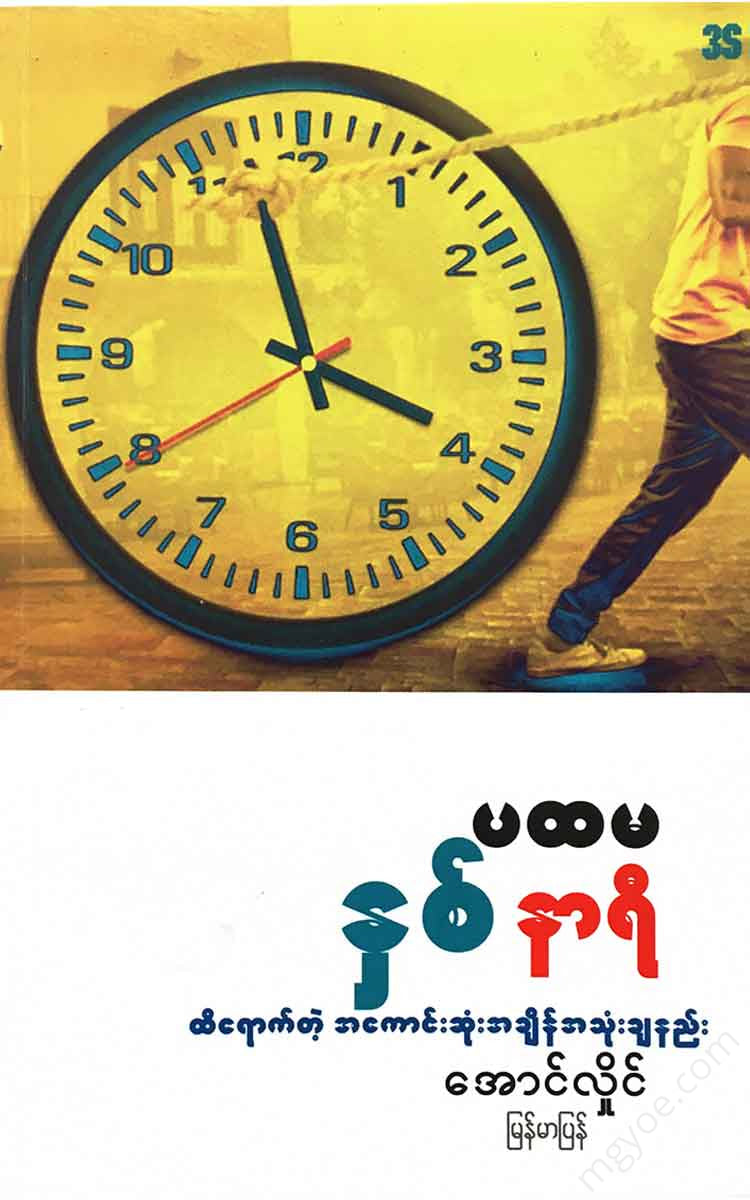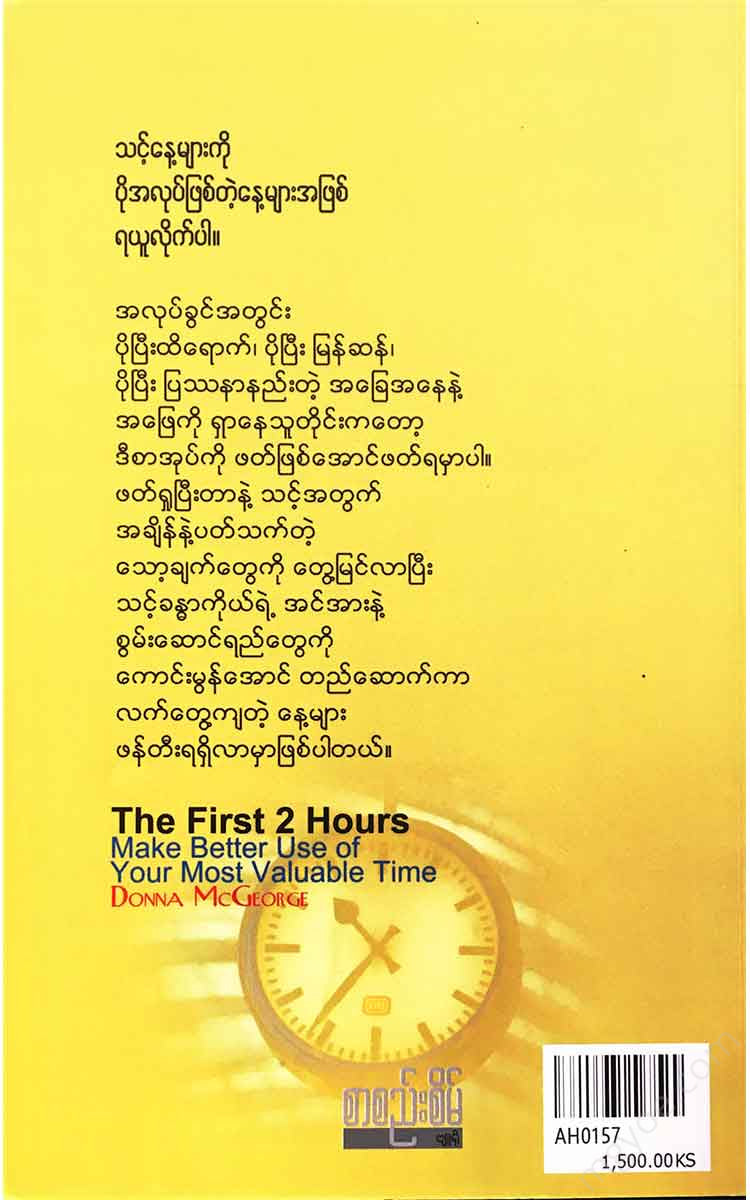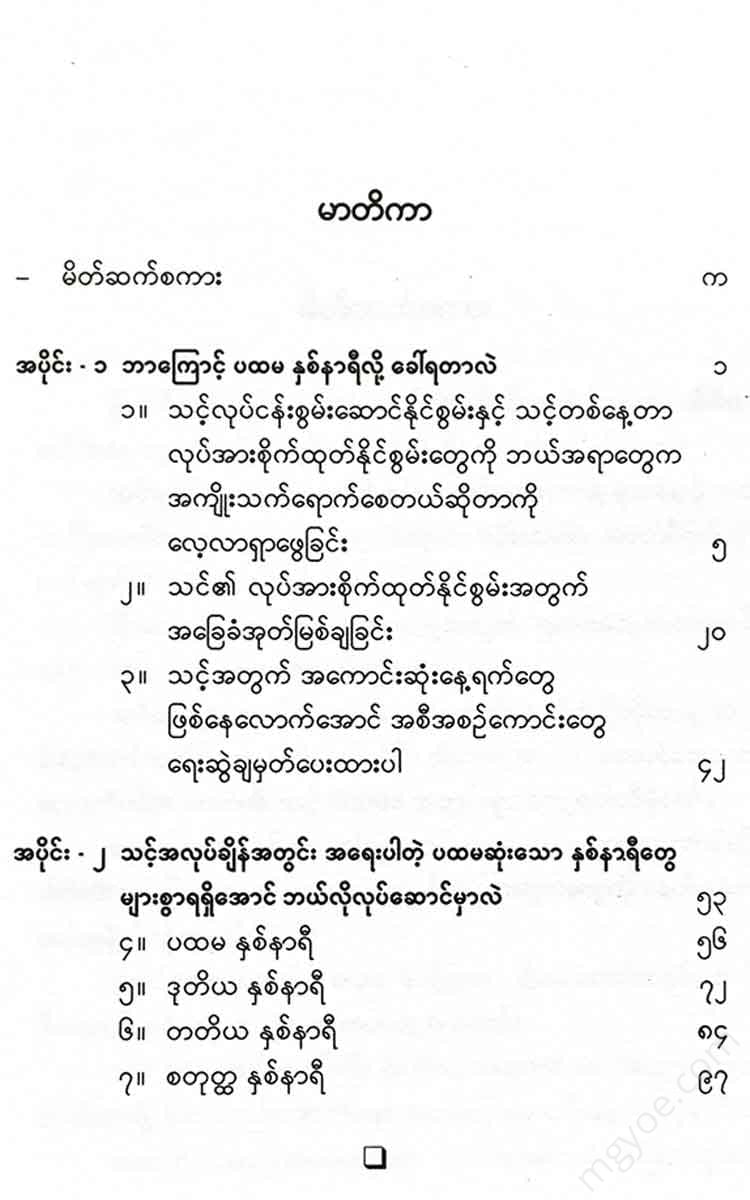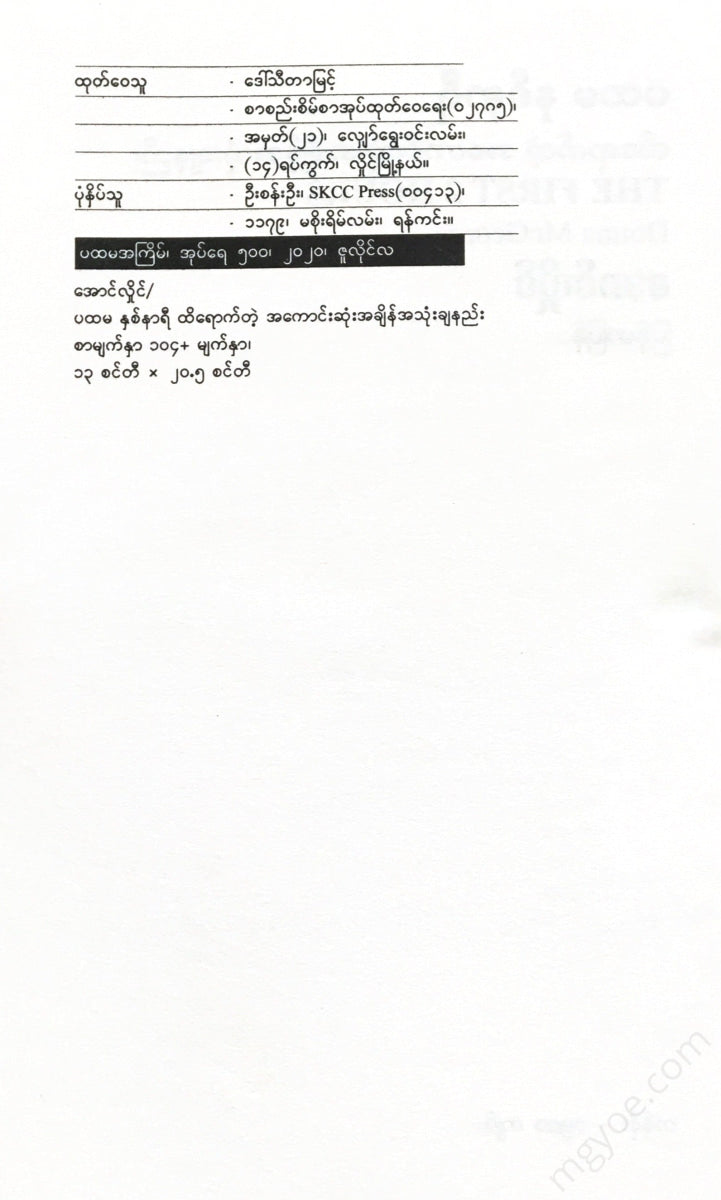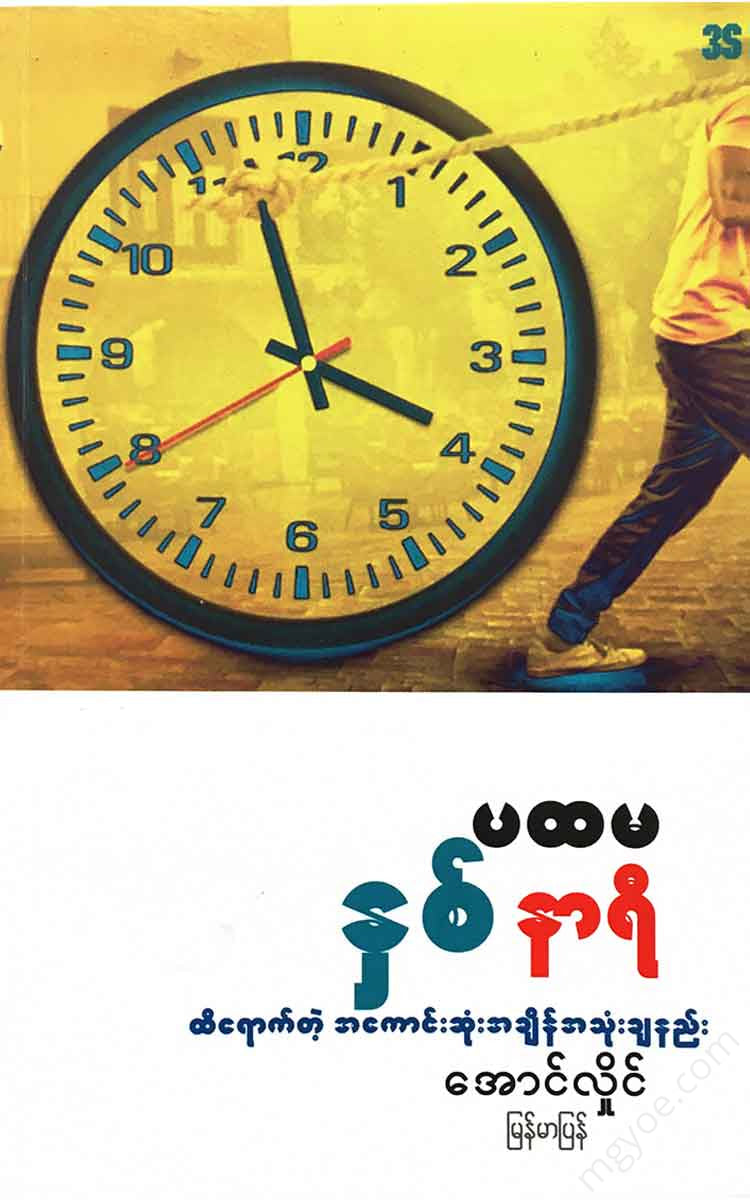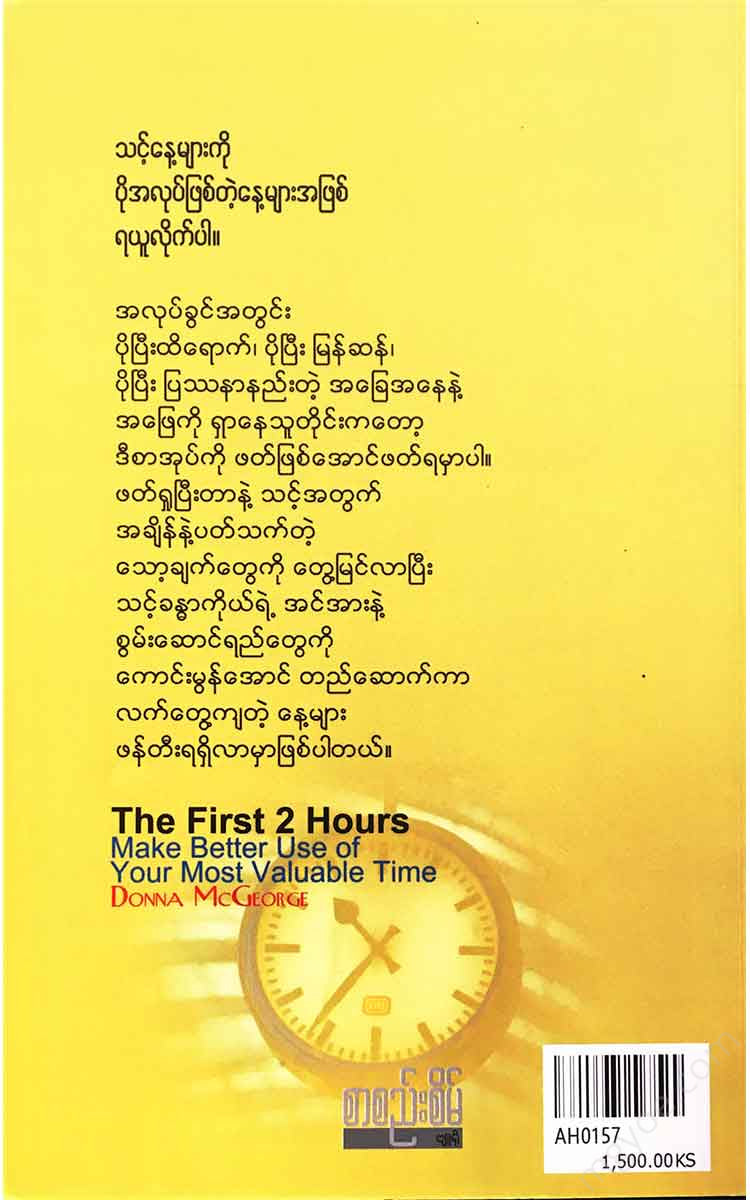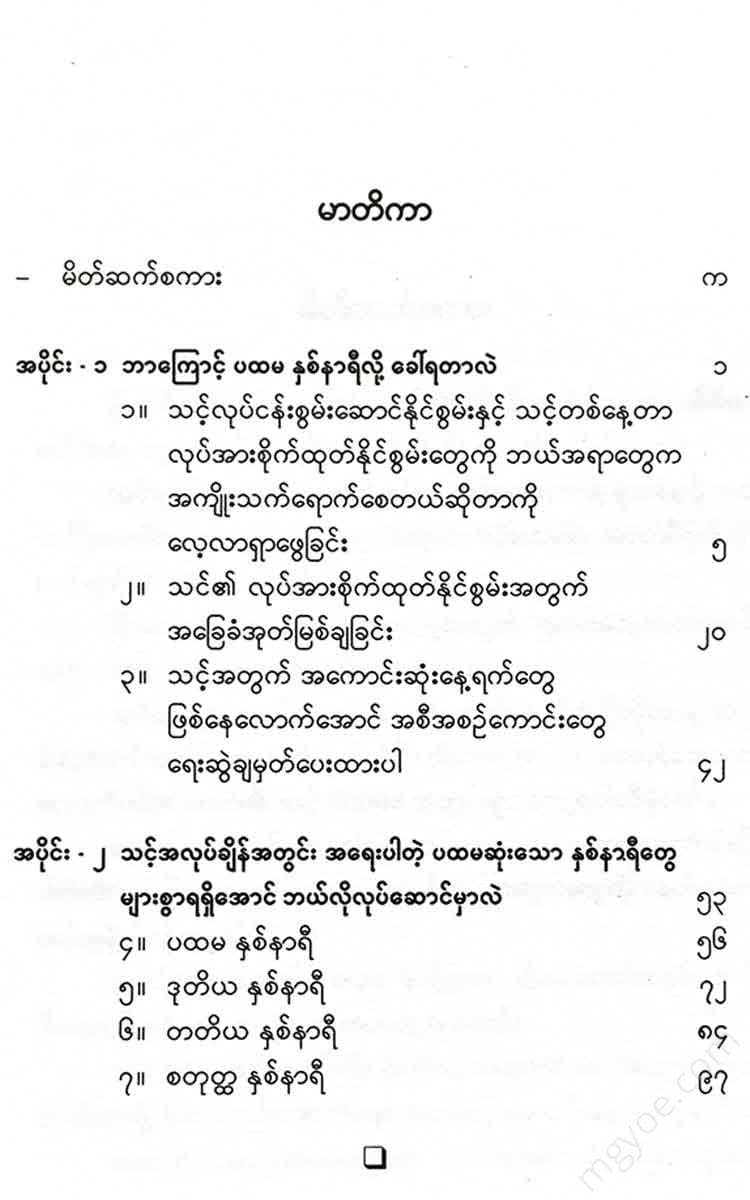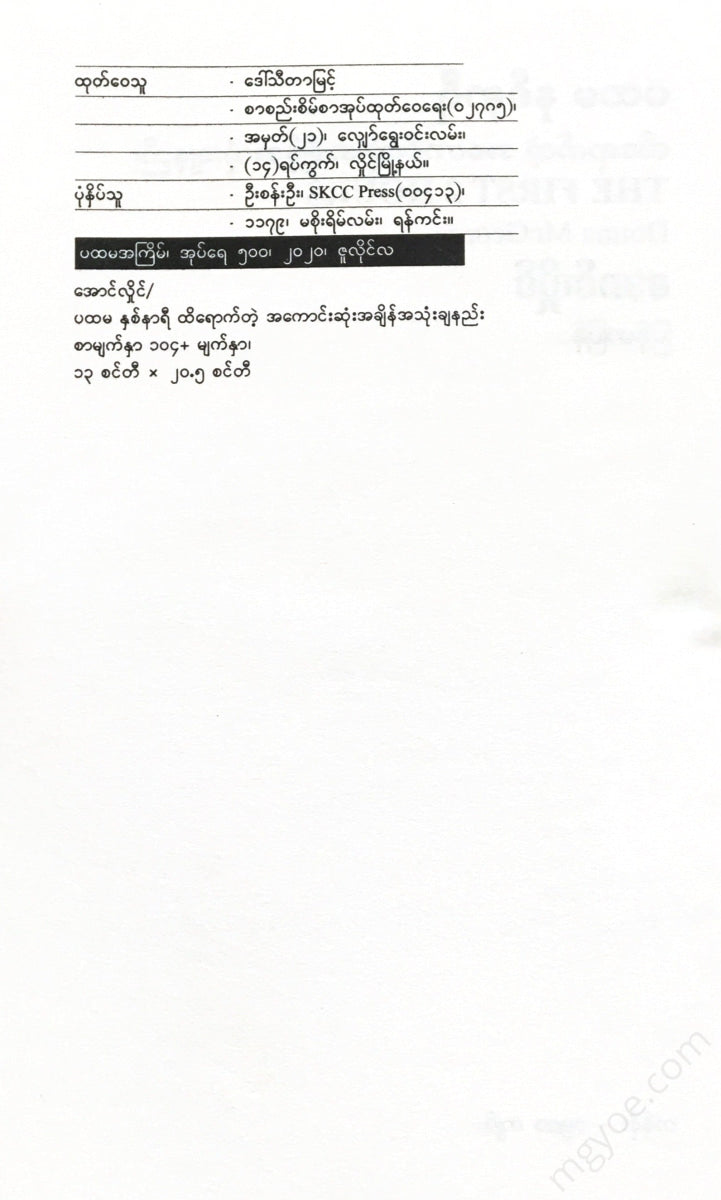စိတ်ကူးချိုချိုစာပေ
Aung Hlaing - The first two hours
Aung Hlaing - The first two hours
Couldn't load pickup availability
Introduction
As soon as the alarm clock ends, you roll out of bed and run towards the bathroom.
After splashing water on your face, you'll glance over to your closet to think about what clothes to wear to the office.
And I have to leave home early so I don't miss the train to get to work on time.
Once you get on the train and sit down, you open your laptop and find about 100 emails in your inbox.
In another 30 minutes, you 'll have to delete 27 newsletters and decline 11 meeting invitations.
It's only 8:30 in the morning, but your entire brain feels hot.
You get off the train and walk to the office, and you'll be very tired when you get there.
The above situations are just everyday life experiences for not only you but for everyone else.
You and I must endure the vicious cycle and strive to break free at some point.
Busy people are often tired from the start of the day, finishing work late in the morning, then midday, then afternoon, and then evening until dusk.
Then, I come home feeling unsatisfied and do as much housework as I can at night, then go to bed exhausted. Then, I wake up the next morning and have to work all day, just like every other day.
The events and processes we encounter every day are like a vicious cycle, and it's not easy to stay calm and focused.
No one knows what will work best for us in trying to fix the problems we face and solve the problems.
In fact, as long as we don't manage our daily time effectively, time will continue to exert pressure on us in various ways.
When managing our time, we need to distinguish between which tasks are important but can be done later, or how many tasks need to be done immediately, and how many tasks need to be done immediately and urgently, and then set a time limit for each task to be completed.
If the work you have to do and the time constraints are consistent, you will be able to manage your time according to the level and type of work remaining.
If you are unable to manage your time and focus only on the tasks you have to do, you will not be able to distinguish between what is important and what needs to be done immediately, and you will end up in a vicious cycle of finishing the next task first and finishing the first task later.
Therefore, please make a list of the tasks that need to be prioritized based on the status of the business situation.
Let's focus more on when we will do what rather than what we will do.
For those who work tirelessly from dawn to dusk, it is essential to maintain a balanced mental and physical state.
To maintain good mental and physical health every day, we need to develop good habits in the first two hours of each work day.
When you start a new day at work , you may think that you can get things done by simply continuing to work on your tasks, regardless of what's in your inbox or who's at your desk. However, in reality, when you try to do everything in your power, you end up not getting everything done, and you end up feeling miserable throughout the day.
So, rather than trying to complete tasks one after another, prioritize them by category and only prioritize the most important and urgent tasks.
Set a reasonable time limit for each task you undertake.
So, when we arrive at work each day, we need to first identify which tasks are likely to reduce our productivity throughout the day.
Once your workday starts, you'll no longer feel bored or tired by checking your inbox , cleaning your desk, or chatting about the football game with your coworker at the next desk. Instead, you'll be able to get the job done with a fresh mind and energy throughout the day.
In fact, you need to prioritize the tasks that are most relevant to you within the first two hours of your workday.
The tasks that are best suited for you are responding to emails in your inbox, planning meetings, and strategizing for next year's events.
We can continue to study the positive effects of the first two hours of our workday.
If you can do productive work in the first two hours of your workday, you will be able to better manage and utilize every hour of your day.
By making small changes to our work habits when we start, we can make ourselves more skilled, efficient, and effective.
We need to do the work we have to do, not just work hard, but do it smartly and get it done. When you start a task, you have to think about what you need to do first and then make choices to do it best.
Changing your habits to successfully complete your tasks will help you stay productive throughout your workday.
You will find that changing your behavior and habits will have various beneficial effects on your ability to always reach the top of your personal performance.
Quiz about personal performance
It's first important to try to understand your own behaviors and habits during your current workday.
Once you understand, answer the quiz questions about your own abilities.
Read the questions below and circle your preferred answer from A, B, C, D, or E in alphabetical order.
You need to be honest about your answer.
- What do you usually do during the first two hours of your workday?
(Works you usually do)
- Drinking coffee. I couldn't do or think about anything related to work while I was drinking coffee.
- I first checked the emails that were coming into my computer's inbox. Before I could even think about the decisions made in the meeting that ended five minutes ago, I checked the emails.
I plan to respond.
- I checked my emails. Many of them were urgent. I was stressed out because I had to interrupt tasks that were not on my schedule.
- I check my emails. I respond immediately. I close my inbox and then I shut down. Then I tackle the most important and urgent tasks of the day.
- I check my email. Then I check what is on my daily schedule that needs to be done immediately. After finishing the immediate task, I take care of the email response. I check if the tasks on my daily schedule that I really need to get done are completed on time.
- How do you feel when you receive a project you were completely unexpected and the deadline is just around the corner?
- I have to be confused about work. This is not really my weakness.
- Okay! If my boss says I have to finish the job, I will.
I will complete it.
- I like to work against deadlines.
- I/We will be ready to do whatever the boss wants me to do, even if I am suddenly surprised. If it really needs to be done... I will get the job done.
I enjoy working.
- I strive to be the best at everything I do, to get the work done that should be prioritized.
